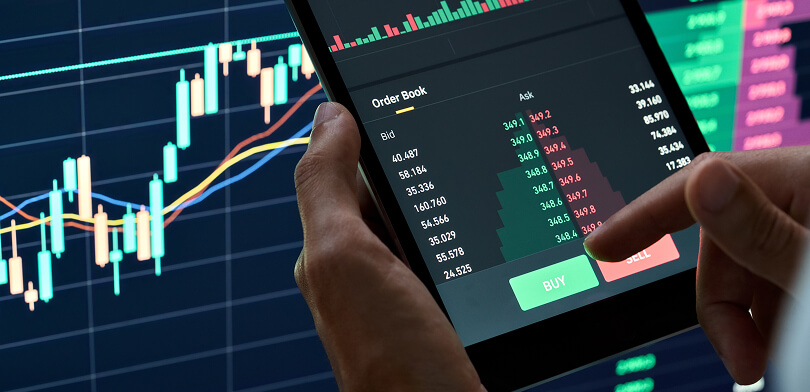The world of finance is in constant flux, driven by innovation and the relentless pursuit of efficiency. One of the most significant transformations in recent decades has been the rise of algorithmic trading. This sophisticated approach, leveraging the power of technology, has fundamentally reshaped how financial markets operate, offering unprecedented speed, precision, and the ability to execute complex strategies at scale. While it presents immense opportunities, it also brings new challenges and requires a deep understanding of the underlying mechanics.
Algo Trading: Meaning and Significance
At its core, Algorithmic Trading—also known as algo trading or automated trading—uses computer programs called Trading Algorithms to automatically execute trades based on set rules. These rules can be simple, like buying a stock at a specific price, or highly complex, involving real-time analysis of large volumes of market data to spot arbitrage opportunities or forecast price trends. Technology plays a crucial role in this process; algorithmic trading would be impossible without advanced computers, smart software, and fast internet connections.
Evolution of Algorithmic Trading
The evolution of algorithmic trading is inextricably linked to advancements in technology. Early forms of computer-assisted trading emerged in the late 20th century. Still, the exponential growth in computing power, data processing capabilities, and network infrastructure truly propelled its widespread adoption. Today’s advanced automated trading systems can analyse millions of data points every second and execute trades within milliseconds. This speed is essential in fast-paced markets, as even a tiny delay can be the difference between making a profit or taking a loss.
Impact of Technology
The impact of technology on trading extends far beyond just speed. Trading algorithms can analyse vast datasets, including historical price data, news sentiment, social media trends, and macroeconomic indicators. This is far more efficient and comprehensive than any human trader. It allows for the identification of patterns and correlations that might be missed by the naked eye, leading to the development of more nuanced and potentially profitable trading strategies. Furthermore, automated trading systems can operate 24/7 across multiple markets, removing the limitations of human trading hours and attention spans.
Advantages of Algorithmic Trading
- One of the key advantages of algorithmic trading is its ability to remove human emotion from the equation.
- Fear and greed are powerful drivers in financial markets, often leading to irrational decision-making.
- Trading algorithms, on the other hand, execute trades based purely on logic and pre-programmed rules, ensuring consistency and adherence to the intended strategy.
- This can be particularly beneficial in volatile market conditions where emotional responses can lead to costly mistakes.
The Implementation of Algorithmic Trading
The implementation of algorithmic trading typically involves several key components.
- Firstly, there’s the development and backtesting of the trading algorithms. This involves creating the rules and logic governing the trading decisions and testing them against historical market data to assess their potential profitability and risk.
- Secondly, the infrastructure includes powerful computers, reliable network connections, and access to market data feeds.
- Finally, there’s the execution platform, which connects the automated trading systems to the exchanges and allows for the automated placement of orders.
Common Algorithmic Trading Strategies Enabled by Technology
The Impact of technology on trading is evident in the diverse range of strategies employed in algorithmic trading. Some common examples include:
- High-Frequency Trading (HFT): This involves executing many orders in fractions of a second, profiting from tiny price discrepancies. HFT is heavily reliant on cutting-edge technology and low-latency infrastructure.
- Arbitrage: This strategy exploits price differences for the same asset across different markets. Trading algorithms can swiftly spot and take advantage of these short-lived opportunities.
- Trend Following: These algorithms identify and capitalise on established market trends, buying when prices rise and selling when they fall.
- Mean Reversion: This strategy assumes prices will eventually revert to their historical average. Trading algorithms buy when prices are below the average and sell when they are above.
- Market Making: This involves placing buy and sell orders to provide liquidity to the market, profiting from the bid-ask spread.
Challenges and Risks of Algorithmic Trading
While algorithmic trading offers numerous benefits, it also presents challenges and risks. One concern is the potential for “flash crashes,” where rapid and unexpected price declines occur due to malfunctioning algorithms or unforeseen market interactions. The interconnectedness of modern financial markets, facilitated by technology, can amplify the impact of such events.
Another challenge is the increasing complexity of trading algorithms. As strategies become more sophisticated, they can become more difficult to understand and monitor. This can lead to unintended consequences if errors are present in the code or if the algorithm behaves unexpectedly in certain market conditions.
Furthermore, the accessibility of algorithmic trading technology has lowered the barrier to entry, leading to increased competition. This means that algorithms must constantly be updated to maintain their edge. The ongoing arms race in technology requires significant investment in research and development.
The regulatory landscape surrounding algorithmic trading is also evolving. Regulators are grappling with overseeing these complex systems and mitigating the potential risks they pose to market stability. Key concerns include transparency, accountability, and preventing market manipulation.
The Evolving Future of Algorithmic Trading
Looking ahead, the role of technology in algorithmic trading is only set to increase. Artificial intelligence (AI) and machine learning are increasingly significant in developing more adaptive and sophisticated trading algorithms. These technologies can learn from market data in real-time and adjust trading strategies accordingly, potentially leading to greater efficiency and profitability.
The impact of technology on trading will continue to shape the future of finance. Algorithmic Trading, driven by ever-advancing
Technology will become even more prevalent, influencing everything from price discovery to market liquidity. Understanding these systems’ intricacies and potential implications is crucial for investors, regulators, and anyone involved in the financial markets.
Conclusion
Algorithmic trading represents a profound shift in the financial landscape, driven by the relentless advancement of technology. Automated trading systems have revolutionised how trades are executed, offering speed, efficiency, and the ability to implement complex strategies at scale. While challenges and risks remain, the impact of technology on trading is undeniable, and the future of finance will undoubtedly be heavily influenced by the continued evolution of trading algorithms and the underlying technological infrastructure that powers them.











